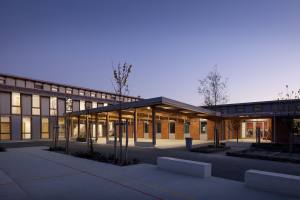CLIMATE ADAPTATION & LOW-CARBON HOUSING CHALLENGE/

Event Detail
Summary of the challenge
The climate crisis requires dramatic action from all stakeholders, and a thriving zero-carbon world will require rapid shifts for both mitigation and adaptation. A billion people lack decent housing, while current housing drives 6% of global emissions from construction and 16% from electricity and heating. Simultaneously, the world saw $268B in losses from natural catastrophes in 2022 – climate-linked droughts, floods, and heat waves that disproportionately affect countries with low cumulative emissions. With strained disaster response and recovery systems, communities need new approaches to build good housing at scale plus ways to integrate climate risk into planning across all decisions.
Multilateral financing for adaptation and “loss and damage” are critical but underfunded. Alongside these resources, innovation is necessary to enable fast, efficient, and equitable shifts in housing and adaptation planning. There are significant data gaps for weather, agriculture, buildings, infrastructure, and challenges to integrating new data with existing systems. Hundreds of millions of homes will need to be upgraded or built, with a need for affordability and new designs often limited by inertia and risk aversion from local trade sectors. New agricultural methods will be necessary to reduce crop losses from harsher droughts or flooding, along with infrastructure upgrades for more extreme weather, or ecosystem restoration to buffer and mitigate impacts of storms or heat. Innovation on processes must go along with technological changes to meet both housing and adaptation goals.
The MIT Solve community is looking for eight technology-based solutions that help communities create quality low-carbon homes at scale or adapt to more extreme weather. To that end, Solve seeks solutions that:
- Reduce emissions from multifamily housing during construction, operation, and end-of-life while addressing barriers to local adoption.
- Support informal communities in upgrading to more resilient housing, including financing, design, and low-carbon materials or energy sources.
- Help communities understand and incorporate climate risk in infrastructure design and planning, including through improved data collection and analysis, integration with existing systems, and aligning financial incentives such as insurance.
- Adapt land and coastal areas to more extreme weather, including through climate-smart agriculture or restoring natural ecosystems.
Special Call: Black & Brown Innovators in the US Program
A housing system shaped by systemic racism and ongoing bias puts the highest energy costs and lowest access to efficient housing on communities of color while keeping them as the most vulnerable to climate-fueled hazards. As part of Solve’s ongoing work on US racial equity, we will select 1-2 solutions from the US working to address these disparities for our Black & Brown Innovators in the US Program.




